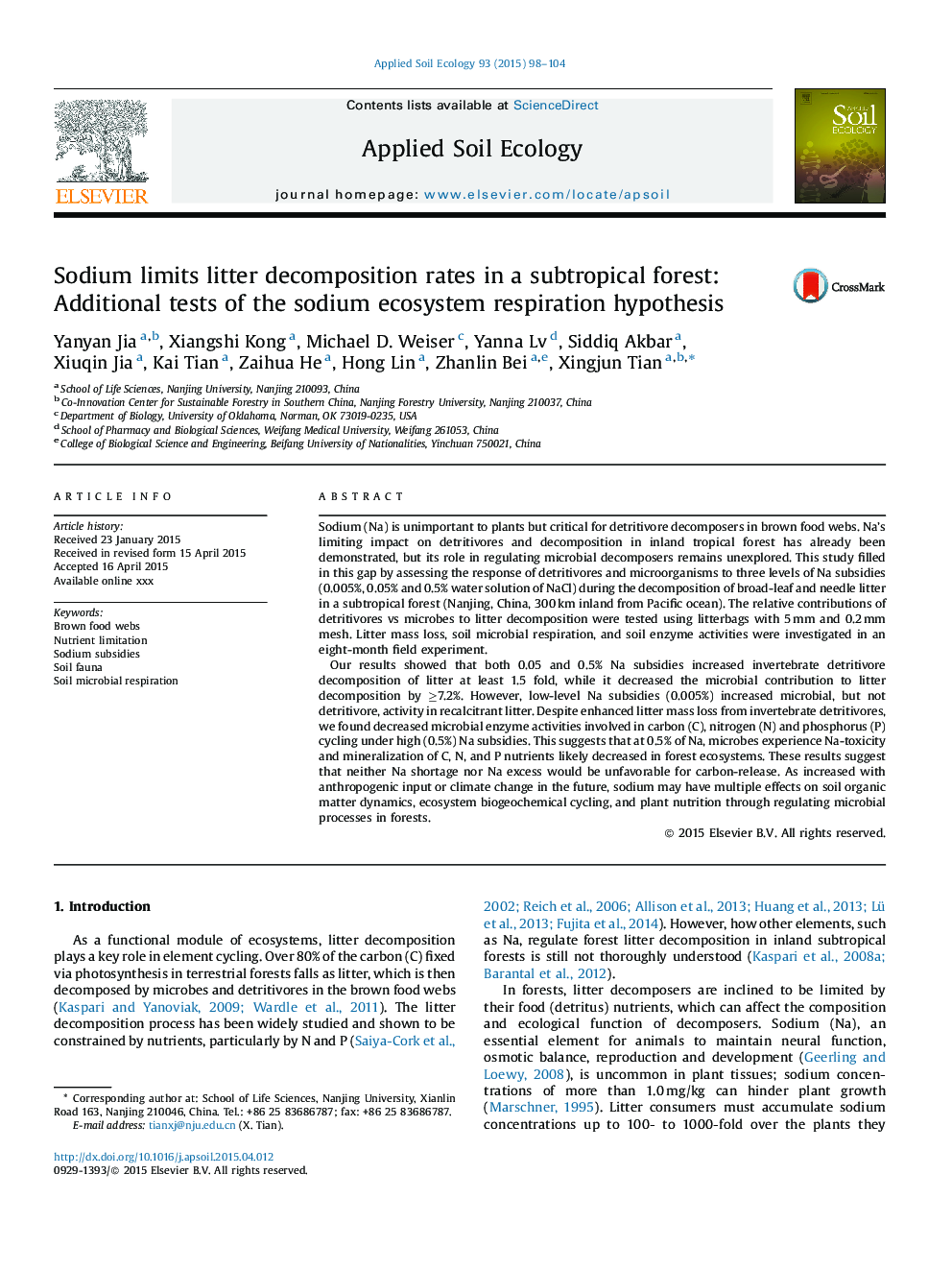| Article ID | Journal | Published Year | Pages | File Type |
|---|---|---|---|---|
| 6297795 | Applied Soil Ecology | 2015 | 7 Pages |
Abstract
Our results showed that both 0.05 and 0.5% Na subsidies increased invertebrate detritivore decomposition of litter at least 1.5 fold, while it decreased the microbial contribution to litter decomposition by â¥7.2%. However, low-level Na subsidies (0.005%) increased microbial, but not detritivore, activity in recalcitrant litter. Despite enhanced litter mass loss from invertebrate detritivores, we found decreased microbial enzyme activities involved in carbon (C), nitrogen (N) and phosphorus (P) cycling under high (0.5%) Na subsidies. This suggests that at 0.5% of Na, microbes experience Na-toxicity and mineralization of C, N, and P nutrients likely decreased in forest ecosystems. These results suggest that neither Na shortage nor Na excess would be unfavorable for carbon-release. As increased with anthropogenic input or climate change in the future, sodium may have multiple effects on soil organic matter dynamics, ecosystem biogeochemical cycling, and plant nutrition through regulating microbial processes in forests.
Related Topics
Life Sciences
Agricultural and Biological Sciences
Ecology, Evolution, Behavior and Systematics
Authors
Yanyan Jia, Xiangshi Kong, Michael D. Weiser, Yanna Lv, Siddiq Akbar, Xiuqin Jia, Kai Tian, Zaihua He, Hong Lin, Zhanlin Bei, Xingjun Tian,
